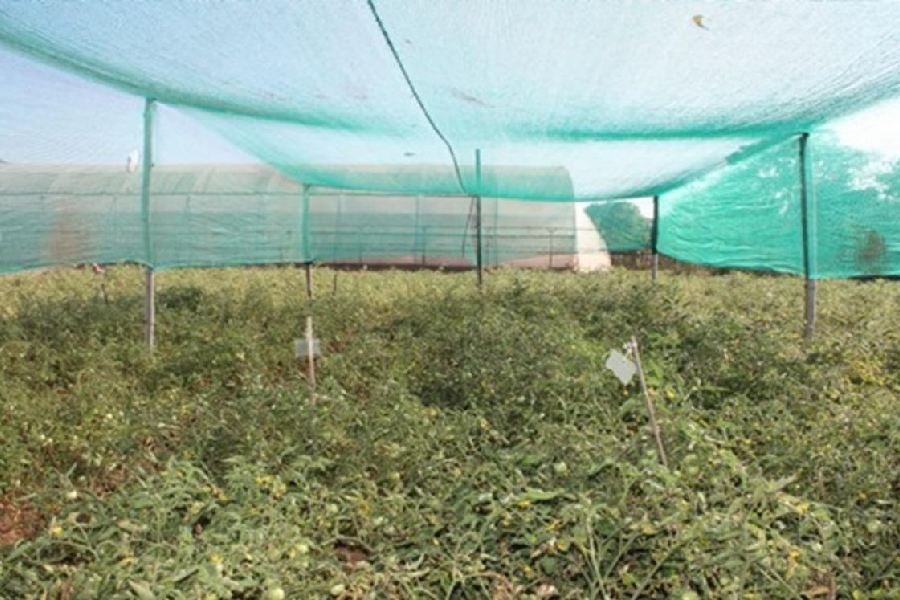Small farmers using protected cultivation technology developed by Ranchi-based Birsa Agriculture University (BAU) can grow vegetables round the year.
“The microclimatic management technologies through temporary shade net developed by BAU has got a trademark from the office of the comptroller general of patents, designs and trademarks of the ministry of commerce and industry, Government of India,” said a spokesperson of the university on Wednesday.
“Through this technology, profitable and sustainable production of quality vegetables can be taken up round the year,” the spokesperson said.
The technology has been developed by the principal investigator at the BAU Centre of All India Coordinated Research Project on Plastic Engineering in Agriculture Structure and Environment Management (PEASEM), Pramod Rai.
“Productivity and quality of cultivated vegetables is affected by genetic material, crop management and microclimate management. The important microclimate parameters like temperature (soil and air), light (intensity and quality), relative humidity, carbon dioxide etc for cultivated crops are managed using protected cultivation technologies,” he said.
“The selection of protected cultivation structure affects the profitability and sustainability, fixed cost, operation cost and carbon footprint of cultivated vegetables,” Rai added.
Citing instances, the researcher said that the cultivation of tomato and capsicum during the summer months (March-May) is problematic due to the high temperature of soil and air and light intensity. “It is more than required for its successful cultivation and affects the crops’ productivity and quality. The major quality concern is sunburns which affect more than 50% of fruit produced,” he said.
“This problem can be reduced by cultivation of tomato and capsicum in permanent structure shade net (green, 35-50%) during summer months. But light intensity in the remaining months of the year (June-February) is less than the optimal level required for its cultivation. The use of a temporary shade net structure only during the summer months (March-May) enhances its utilization and cost economics. It increases the marketable quality by a minimum 50% and productivity between 30% and 40% in comparison to open field cultivation under the same agronomical practices,” Rai claimed.
The BAU researcher claimed that the application for another trade mark on a detachable roof polyhouse has been accepted for processing by the ministry.
“Due to the greenhouse effect during the summer season, the temperature of soil and air is very high under natural ventilated polyhouse apart from that light intensity is also very high. The reduction in temperature (soil and air) and light intensity is very essential to make the natural ventilation suitable for round the year cultivation,” said Rai.











